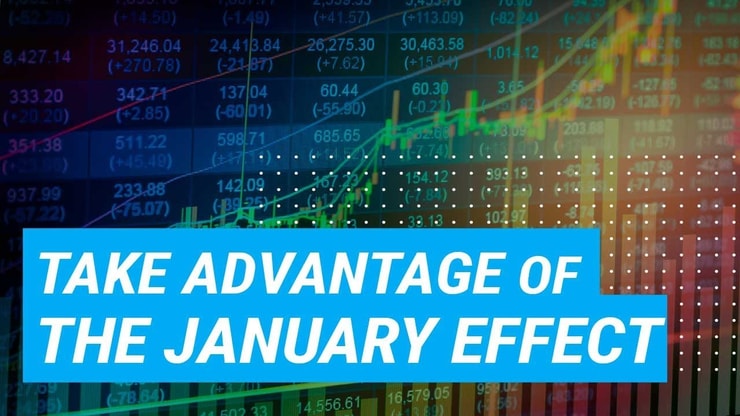Every year I sit back and laugh at the hoards of people who rush to stores for Black Friday deals.
People are obsessed with STUFF. It seems like every year, some crazy deal causes people to go insane and someone innocent gets in the way. Please don’t be the person who goes viral tackling an elderly woman to get to a TV.
Black Friday deals? No thanks. I’ll cool my heels and wait for Cyber Monday. These days, online deals online seem better than what you find in stores. Plus, I can skip the lines AND shop in my underwear? Double win.
For many families, it’s a tradition to dive into Black Friday madness, but it doesn’t make a ton of sense to me. It all seems like junk to me. Will some gadget that will be obsolete in six months really make your life better?
I think you should spend your time and money on things that can really make a difference … like the killer Black Friday and Cyber Monday sales at StocksToTrade. This is something you can actually use and that can help improve your life.
I’ll discuss that deal more in a bit, but first … how did Black Friday become a cultural phenomenon?
Table of Contents
What Is Black Friday?
Black Friday is always the Friday following Thanksgiving. This year, Thanksgiving is late, which means Black Friday will land on Friday, November 29.
Black Friday is the busiest shopping day of the year for many Americans. It also marks the beginning of the holiday season.
It’s crazy that 2019 is nearly over!
So how did Black Friday become a ‘cultural’ tradition? And why is this period critical for day traders?
First, let’s look at how Black Friday became … well … Black Friday.
From what I can tell, the term “Black Friday” was coined by police officers in Philadelphia to describe the massive traffic jams following Thanksgiving.
It’s a common misconception that the name comes from retailer profits. Some think it’s the day stores go from the red (i.e., unprofitable) to black (profitable) on the year. Not true. But this day does spur the U.S. economy — many people leave their homes to open their wallets and SPEND.
The holiday season is critical for retail stores. The influx of consumer spending allows many stores to have record fourth-quarter earnings.
The sad part? Consumers tend to waste money on superficial goods instead of using their hard-earned cash on something really useful or to help their loved ones or community.
But what can I do? If people want to waste their money, that’s up to them.
I get it. I used to splurge on fancy cars. But over the years, I learned these things don’t make me happy. So, as I announced at the 2019 Trader & Investor Summit, (get the DVD here) I sold all my cars.
Yep … no more Ferrari, Rolls, or Lambo.
I don’t want to waste my hard-earned money. I do want to help make the world a better place. So I helped form Karmagawa. And I’m proud to say that Karmagawa has now built nearly 60 schools and libraries. And we’re only getting started.
Wall Street’s Negative History With Black Days
The use of the term ‘black’ in the market doesn’t always spark awesome memories. In fact, it marks some of the worst market catastrophes throughout history.
So it kinda bothers me that Black Friday is supposed to be this joyful thing, but there’s this super bleak history lurking in the background.
There’s Black Monday, which occurred on October 19, 1987. That’s when the Dow dropped 23%. To this day, Black Monday is the most significant one-day drop in stock market history.
Another dark day in the stock market? Black Thursday on October 24, 1929. That kicked off the Great Depression. Only five days later was Black Tuesday, on October 29, 1929. That’s when the stock market dropped another 12% despite all efforts by major investors to support stock prices.
After Black Thursday and Black Tuesday, investor confidence shattered. It took decades for the public to regain trust in the market. At the lows of the Great Depression, the stock market had lost nearly 89% of its value!
It’s safe to say, that “Black” days don’t exactly have a positive connotation on Wall Street…
But even with all that, every year, Black Friday signals the beginning of my favorite season to trade.
More Breaking News
- From Win to More Wins: Discover How Direct Digital Holdings Inc. Is Celebrating Success
- Faraday Future: Is It on the Brink of a Rebound or a Downward Spiral?
- Zeekr’s Unexpected Surge: What’s Fueling the Rapid Rise?
Black Friday’s Trading Relevance
For most, the holidays are a happy time, full of family, joy, and giving. And for traders, it can be one of the best times of the year.
As the year comes to a close, volatility typically ramps up in the stock market. Almost every year, we see a sector heat up. My dedicated Trading Challenge students prepare for these plays all year.
The holiday season is a hectic time of year for people. And of course family is always important, but my most dedicated students continue to find time to study and prepare. The more prepared you are, the easier it’ll be for you to capitalize on the January Effect, shorter market hours, and the increased volatility in penny stocks.
Shorter Market Hours
It may seem counterintuitive, but shorter market hours can actually create more opportunities. While other traders take time off to hang with family or for other holiday fun, there’ll be more plays for the traders who are willing to stick around.
On Black Friday, the markets close early at 1 p.m. Eastern time. This means there are three hours less of live market time. The day’s volatility gets compacted into a shorter time period. The midday lull is squashed as traders compete in the highly volatile open, then quickly transition to end-of-day and power-hour trading.
There can be wild moves on these short trading days because there’s no break in volatility.
Remember, no play is guaranteed. Although this time of year is typically full of wild penny stock spikes, nothing is guaranteed. Be patient and let the best plays come to you.
As we continue into the new year, Christmas Eve also is a shorter trading day. The entire market is closed on Christmas Day.
Even though the market will be open outside these days, many traders will be away from their desks. With fewer traders in the market, opportunities can pop up for those who are prepared.
Study vs. Holidays
Traders are real people, and it’s healthy to take days off. After all, most people become traders because they want to have the freedom to do whatever they want with their time rather than working a 9–5 job.
I’m not saying you have to give up your holiday season or time with your family. But even small sacrifices can make a difference in your trading career.
Over the next five weeks, many traders will be unfocused and undisciplined. Will you be one of them? The choice is yours. But I guarantee my top students will be laser-focused as the year closes.
January Effect
I love this pattern! It allowed me to profit millions in the market over the last 20 years.
But before I go any further, I gotta make the lawyers happy … Keep in mind that I’m not giving you legal or financial advice. You should consult an attorney or accountant for that kind of stuff. Do your due diligence.
As 2019 closes, individuals will sell off their losing investments for tax write-offs. This is the first stage of the January Effect.
Stocks are artificially pushed lower because of tax laws. I’m not looking to take advantage of these drops, but I’ll remember to keep penny stocks with unusually high volume on my weekly watchlist.
Once the year ends, stocks are poised to spike in January as investors repurchase shares for the 2020 tax year. This is especially true for penny stocks.
The January Effect occurs every year and can help traders start the new year with a BANG! But only prepared traders … So how can you anticipate the January Effect? Here are a few hints…
- Watch for low-priced stocks trading larger-than-average volume. The easiest way to find these is to use this revolutionary software.
- To fully be prepared, you need to join my Trading Challenge. The students in my challenge are dedicated and work together on trading ideas. They also have access to my weekly watchlist, 6,000+ video lessons, and years of January Effect webinars that are strictly for Challenge students only.
- Invest in your trading education instead of some worthless garbage. The best penny stock trading software is having a HUGE Black Friday and Cyber Monday sale. There’s no better time to start your trading journey thanks to this incredible tool and its Oracle Daily Direction Alerts.
- STUDY! I can’t emphasize studying enough. The more you study now, the easier it’ll be to spot a January Effect play.
My Year-End Hope for You
We’re coming to the end of the decade. We’ve seen unprecedented advancement and technological changes in the stock market. Average people have more access to stock data than previous generations could even imagine.
As we celebrate Thanksgiving and start the holiday shopping season with Black Friday, I hope you take the time to consider what’s truly important to you. This year, I hope you start working on your passion. Whether that’s trading or something else, invest in your education. Don’t waste your money on some overblown Black Friday deal.
I hope you take advantage of the great StocksToTrade Black Friday and Cyber Monday deals — it can seriously help you every trading day. Remember to work hard and study hard. I want to see you succeed.
2020 will be a big year. But don’t forget, one of the most volatile times in penny stocks has just arrived. Make sure you’re ready to take advantage of the opportunity.
[Note that my results aren’t typical. I’ve put in the time and dedication and have exceptional skills and knowledge. Most traders lose money. Always remember trading is risky … never risk more than you can afford.]
How will you prep for this trading season and the new year? Leave a comment and let me know!





Leave a reply